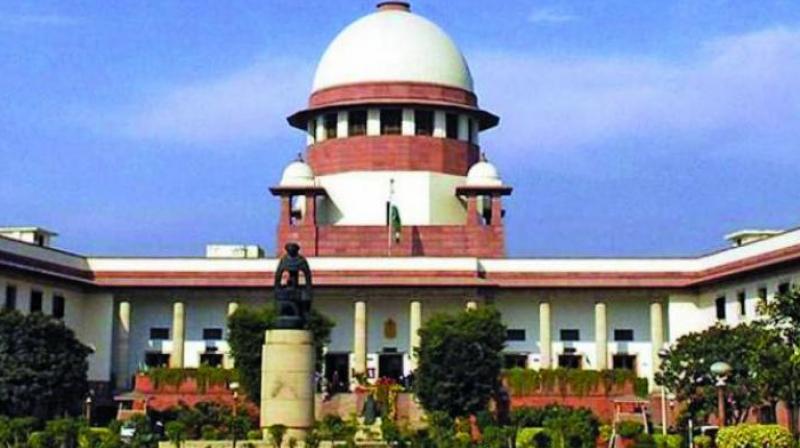Supreme Court to hear Ayodhya dispute on February 26
Thereafter the present CJI Ranjan Gogoi directed the matter to be heard by five judges.

New Delhi: A five-judge Constitution Bench of the Supreme Court will hear on February 26 a batch of 13 appeals against an Allahabad High Court verdict in the Ram Janmabhoomi-Babri Masjid title suit in the disputed site in Ayodhya, granting two-thirds of land to Hindus and one-third to Muslims.
In September last year, a three-judge bench headed by the then CJI Dipak Misra had rejected the plea that the 1994 verdict that Mosque is not an essential part of Islam and Muslims can do their prayer anywhere should be revisited.
Thereafter the present CJI Ranjan Gogoi directed the matter to be heard by five judges. But as Justice S.A. Bobde was on leave the matter could not be heard. On Wednesday, the Registry notified that the Constitution bench would hear the appeals on February 26. The Bench will also hear the Centre’s application seeking permission for return of the excess land acquired in Ayodhya In and around the make shift temple of Lord Ram.
Petitions have also been filed questioning the Constitutional validity of ‘The Acquisition of Certain area at Ayodhya Act, 1993’ on the ground that Parliament has no legislative competence to take over/acquire the property.
In a writ petition advocate Shishir Chaturvedi and seven others contended that the Centre had acquired about 67 acres of land in 1993 though such a vast extent of land was totally unconnected with the property in dispute, which is only 0.313 acres of land. This plea is likely to be heard by a five-Judge Constitution Bench hearing the appeals relating to the title dispute on the 2.77 acres of Ram Janmabhoomi land.
It is not disputed that the property in question situated at Ayodhya has not been declared as ancient and historical monument by any law made by Parliament. This property in dispute at Ayodhya is important for pilgrimage. The UP Legislature has power to enact law on those subjects and Parliament cannot encroach upon the state.

